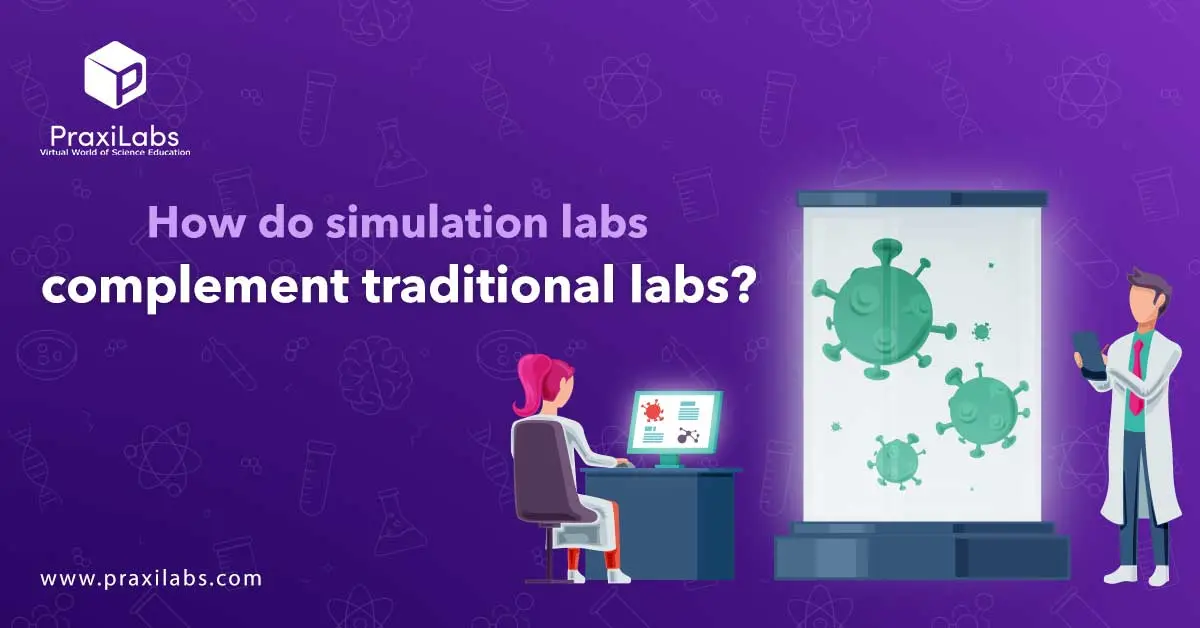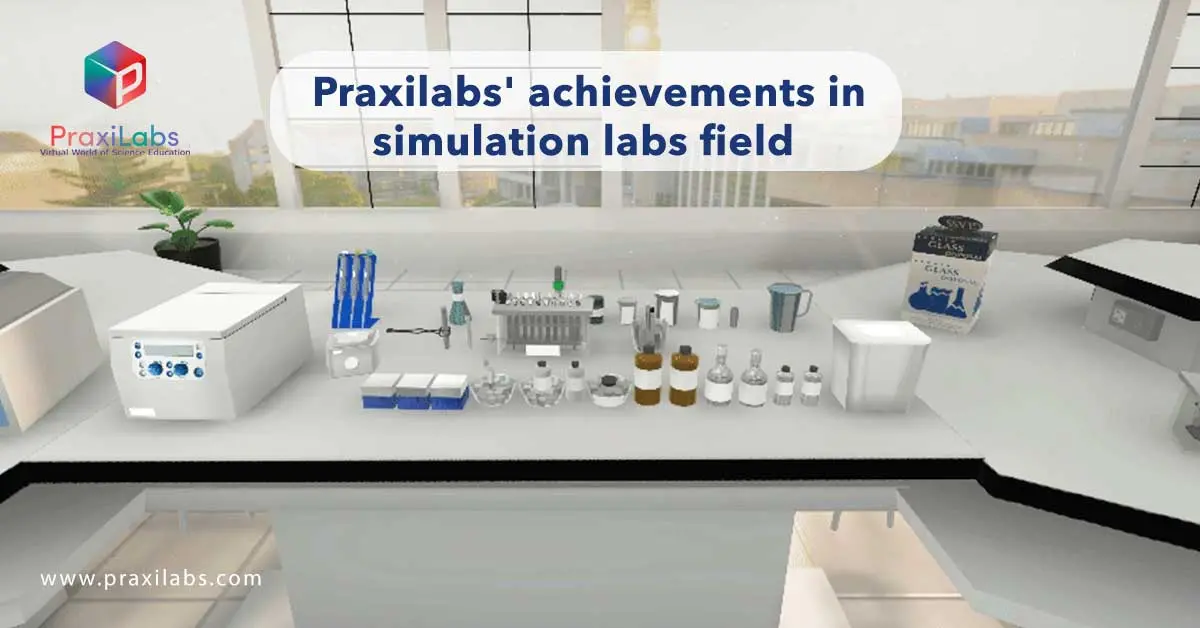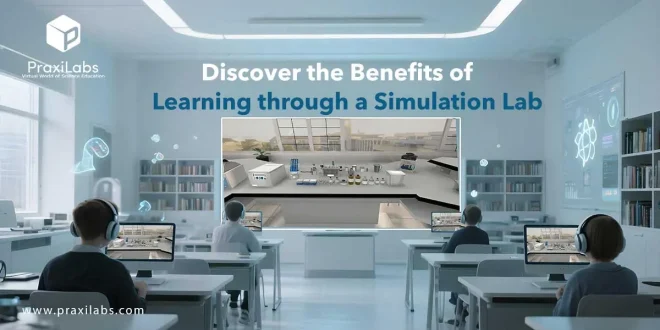Last Updated on October 23, 2025 by Muhamed Elmesery
Imagine stepping into a lab where every experiment is at your fingertips — no risks, no limits, just pure exploration. Simulation labs have been transforming science education by making complex concepts easier to grasp, safer to practice, and more accessible than ever before.
Through realistic, interactive experiences, students can visualize theories, test ideas, and learn from mistakes in a fully digital environment. Whether used alongside traditional labs or as a standalone learning tool, simulation labs open the door to a deeper understanding, stronger skills, and more confident learners.
Table of Contents
What is a simulation lab?
ِA simulation lab is a virtual replica or a highly dynamic digital environment that enables users to interact with pre-programmed elements and scenarios. In education, online simulation labs enable students to conduct their experiments virtually using their computers anytime and anywhere without risks or limitations, to enhance their learning retention and outcomes.
How do simulation labs work?
Simulation labs work by mimicking or replicating real physical lab conditions and experiments in a virtual learning environment. They allow students to conduct experiments, manipulate variables, and observe results just as they would in a physical lab.
Simulation labs use software and computer models to replicate the equipment, procedures, and experiments that would typically be conducted in a physical lab.
For example, in the biology virtual lab, students can learn how to extract total RNA from tissues and understand how to protect RNA samples, or become proficient in performing the streak plate method consistently and accurately.
In physics simulation labs, students can explore different physical concepts such as electricity, heat and thermodynamics, properties of matter, waves, magnetism, and more.
In the chemistry virtual lab, students can run organic chemical reactions, understand the mechanisms of several reactions, or for example, determine the molarity of NaOH solution using a standard solution of HCl using two different pH indicators (ph.ph and M.O.).
What are the benefits of simulation labs?
The benefits of lab simulator in education and teaching include:
- Providing a safe environment for training and making mistakes without real consequences.
- Increasing learner engagement and motivating active participation.
- Enhancing critical thinking and problem-solving skills.
- Facilitating the transfer of theory to practical applications in the real world.
- Enabling repetition and providing personalized feedback to improve information retention and skill mastery.
- Bridging the gap between theoretical knowledge and practical skills in a controlled, cost-effective, and low-risk environment.

How do simulation labs complement traditional labs?
Simulation labs complement traditional labs by bridging the gap between theory and hands-on experimentation.
Simulation labs prepare students for real laboratory work; they act as a training ground where students can explore, experiment, and make mistakes safely before stepping into a real laboratory. Through guided, interactive simulations, they learn the correct procedures, develop precision in handling equipment, and understand the logic behind each experimental step.
By the time they enter a physical lab, students are already familiar with the workflow, safety protocols, and expected outcomes — making them more confident, accurate, and efficient.
In this way, virtual labs ensure that real lab time is used more productively and that students gain the most from hands-on scientific experiences.
Advantages of using virtual labs for educational purposes
- Using virtual labs provides an interactive learning experience; a simulation lab is not just a collection of videos, but fully interactive and immersive, guiding users to select materials and preparations, make decisions, and receive immediate feedback and corrections.
- virtual simulations labs improve students’ understanding and critical thinking, thereby enhancing their learning outcomes significantly.
- Students can repeat experiments anytime and anywhere, which supports mastery through continuous practice, learning from mistakes, and self-directed learning.
- Subscription costs for simulation lab platforms are much lower than the costs of setting up a real laboratory or classroom with their expensive equipment and resources.
- Virtual lab simulations provide a safe and risk-free environment where users can, for example, conduct physical experiments that might be dangerous without exposure to any real risk. The virtual lab is ideal for beginners, as there is no need for costly equipment or specialized safety procedures.
- Online virtual lab simulation aims to address the lack of quality lab facilities and trained teachers by providing remote access to simulation based learning labs in various disciplines of science and engineering anytime and anywhere.
- Simulation labs inspire students’ curiosity, allow them to learn at their own pace without any pressure, and facilitate the understanding of basic and advanced concepts through simulation-based experimentation.

Praxilabs’ achievements in simulation labs field
PraxiLabs reshapes STEM education with immersive, award-winning 3D virtual labs in Biology, Chemistry, and Physics.
Globally recognized for innovation, PraxiLabs empowers institutions to deliver high-quality, safe, scalable, and cost-effective science education— accessible anytime, anywhere.
Over the past years, PraxiLabs has emerged as a pioneer in virtual science education, redefining how students and educators experience laboratory learning.
Awards & Recognitions
- STEM.org Accredited™ Certification — PraxiLabs was officially awarded the STEM.org Accredited™ certification, recognizing the quality of its virtual science labs and their role in supporting innovative, engaging, and safe STEM education, further strengthening its position as a leading EdTech provider of virtual laboratories.
- UN SDGs Award in Education (2021) — Awarded for advancing sustainable education in Egypt and beyond.
- Next Billion EdTech Prize (2019) — Recognized for driving impactful, scalable education solutions.
- Cartier Women’s Initiative Winner (MENA Region, 2023) — honoring CEO Dr. Khadija El-Bedweihy for her leadership in transforming science education.
- Africa’s Business Heroes Grand Prize Winner — Recognized among the top 10 startups in Africa.
- Featured among Top 50 Promising EdTech Startups by HolonIQ, the Top 10 Startups Impacting Education by StartUs Insights, and Microsoft Top 10 Startups in 2022.
Frequently Asked Questions
What do we study in a simulation lab?
We study several branches of science simulations such as physics, chemistry, biology, and more!
Can scientific inquiry be effectively taught through simulations?
Yes, research shows that taught through simulations improves conceptual understanding, fosters critical thinking, and can help students overcome misconceptions more effectively than traditional methods.
What are the benefits of using virtual training labs?
Virtual training labs provide interactive, immersive and direct connection with the training environment by providing simulations for hands-on learning experience.
 PraxiLabs A virtual world of science
PraxiLabs A virtual world of science






